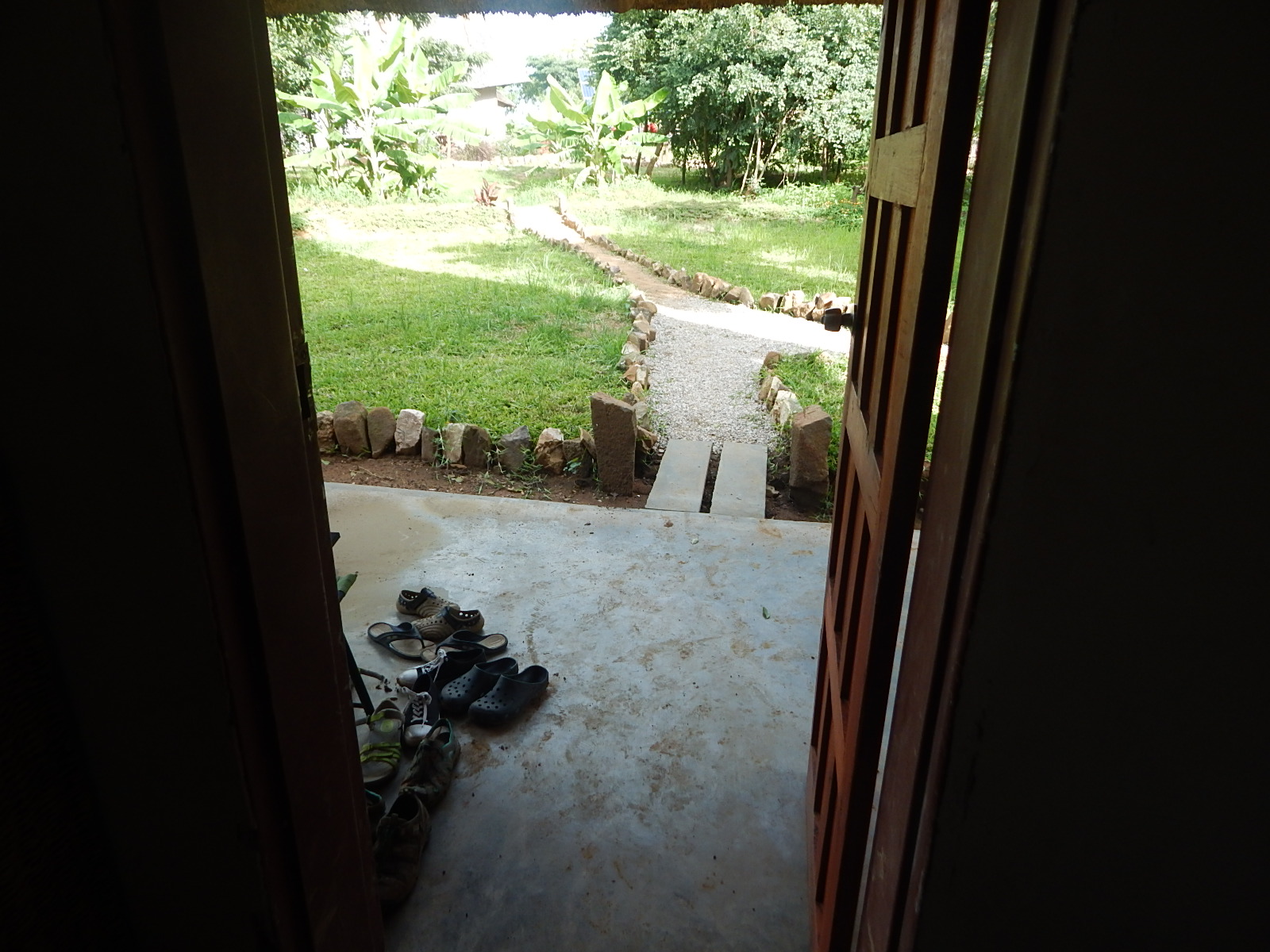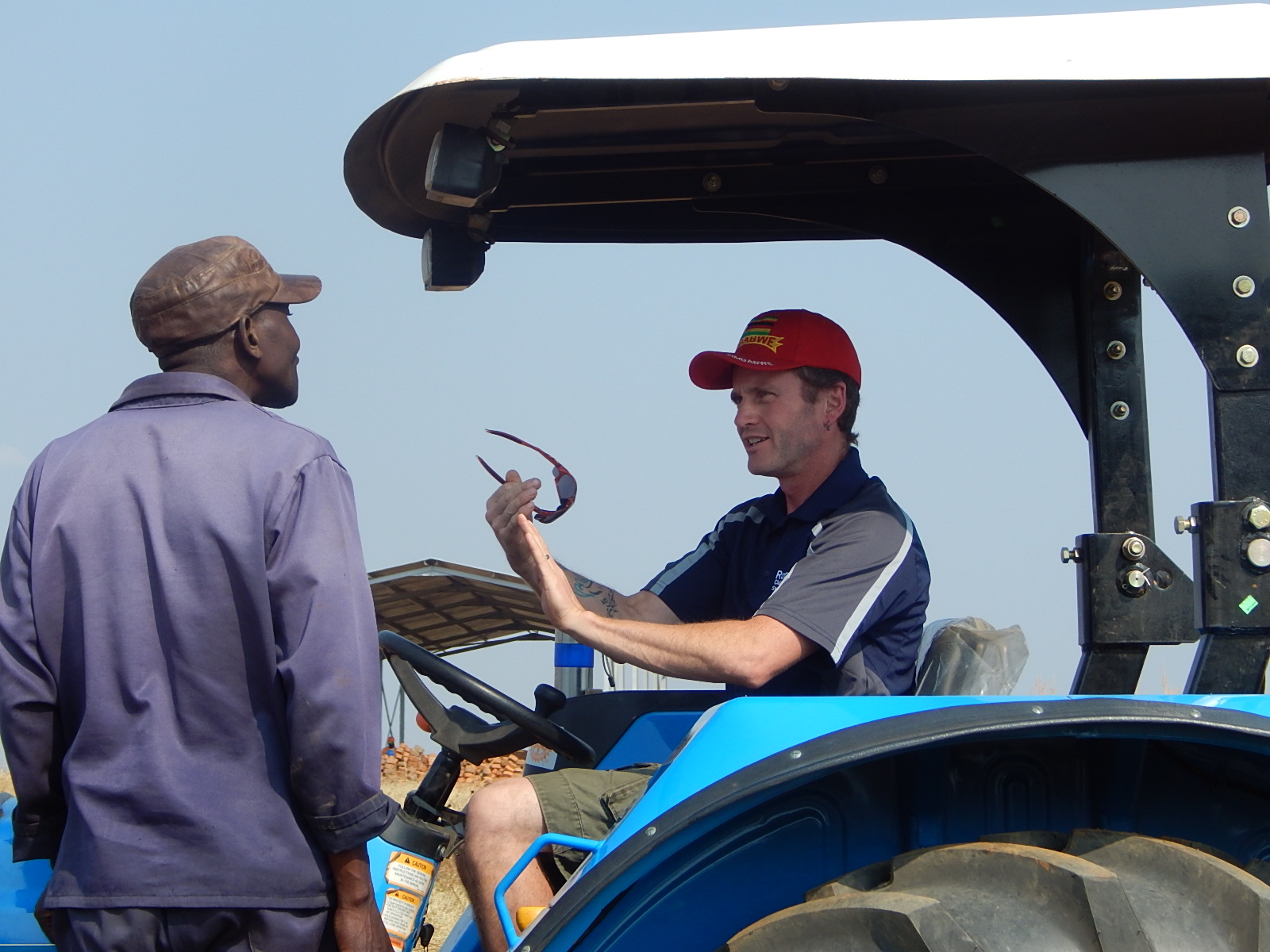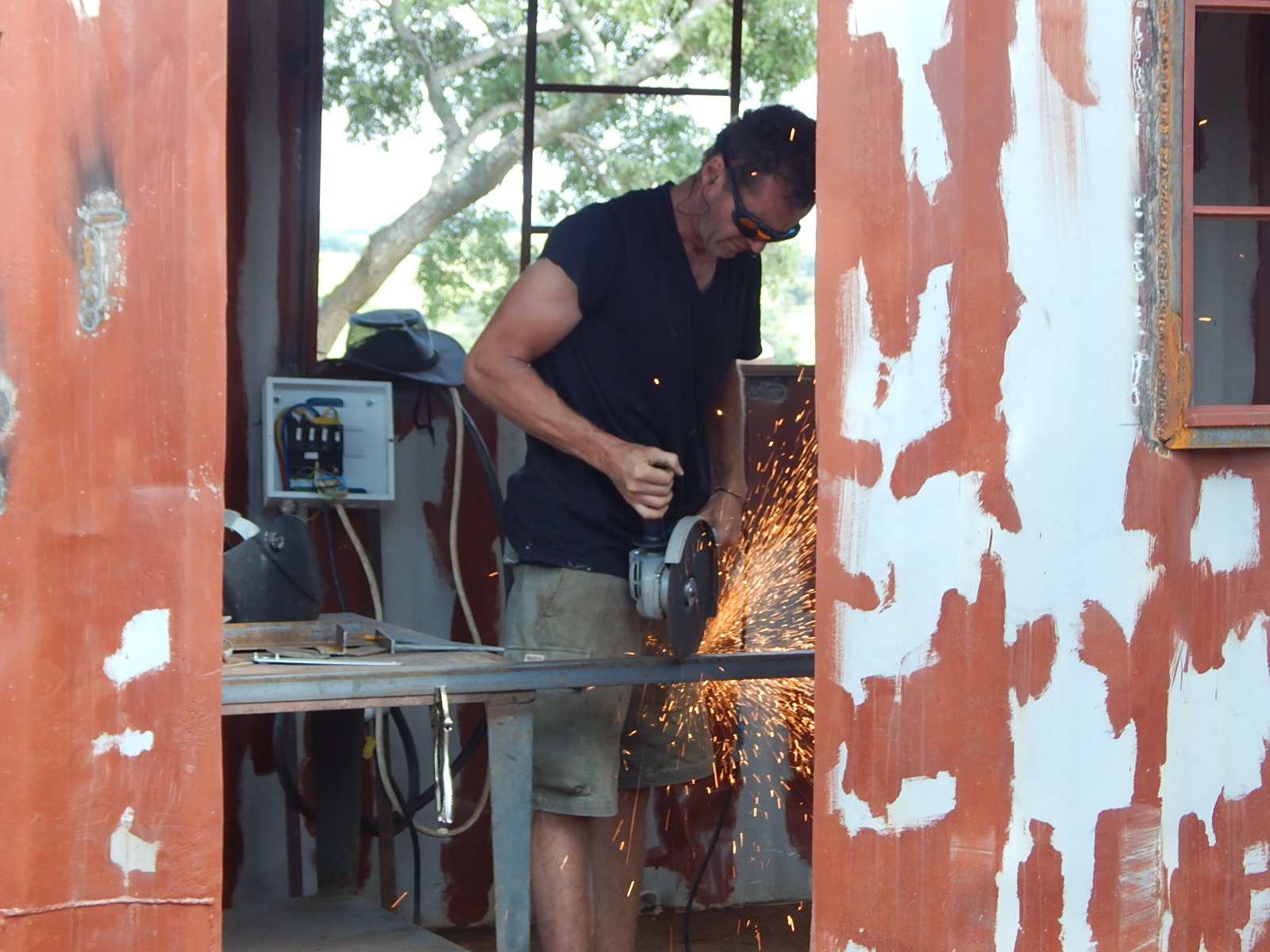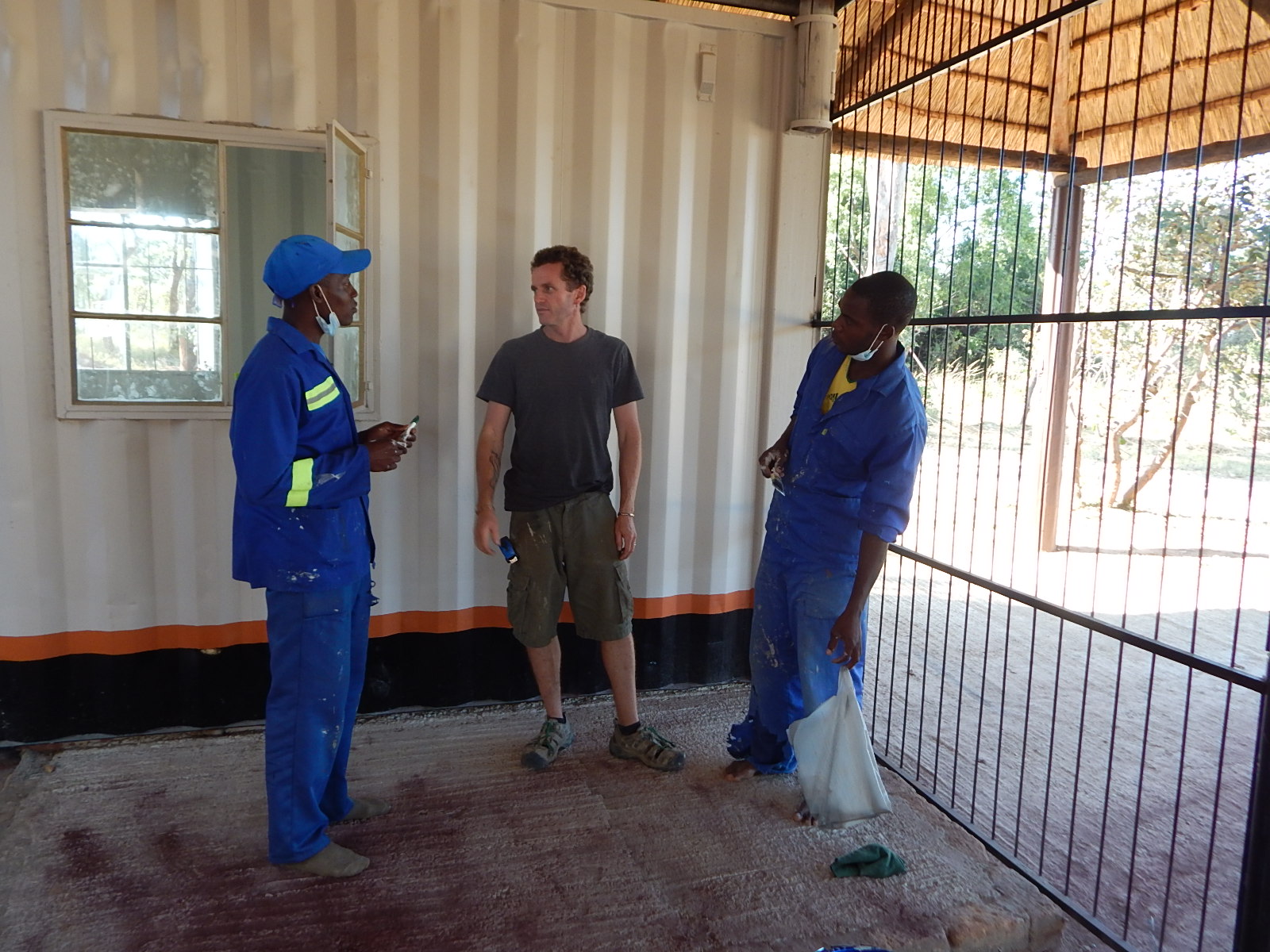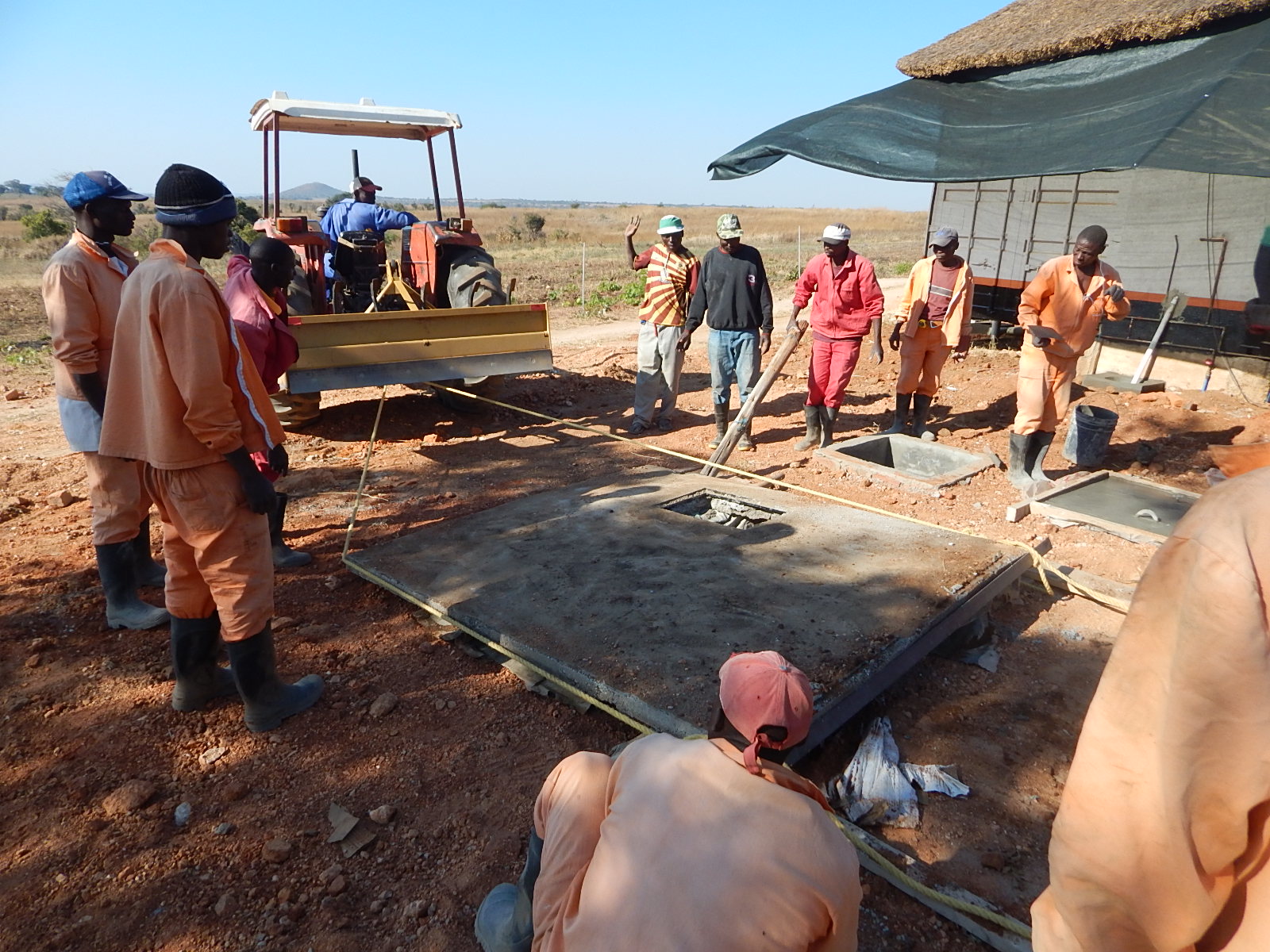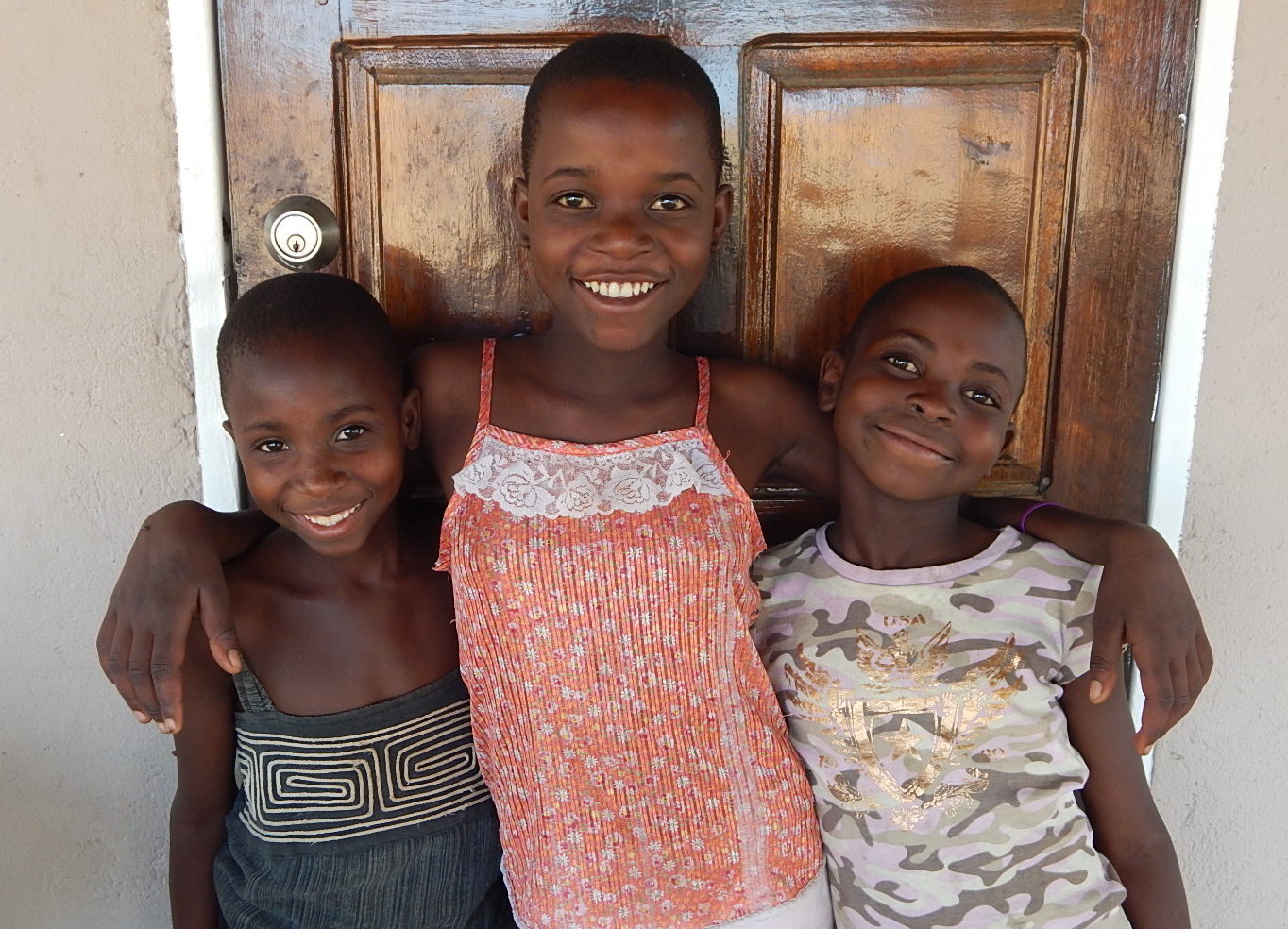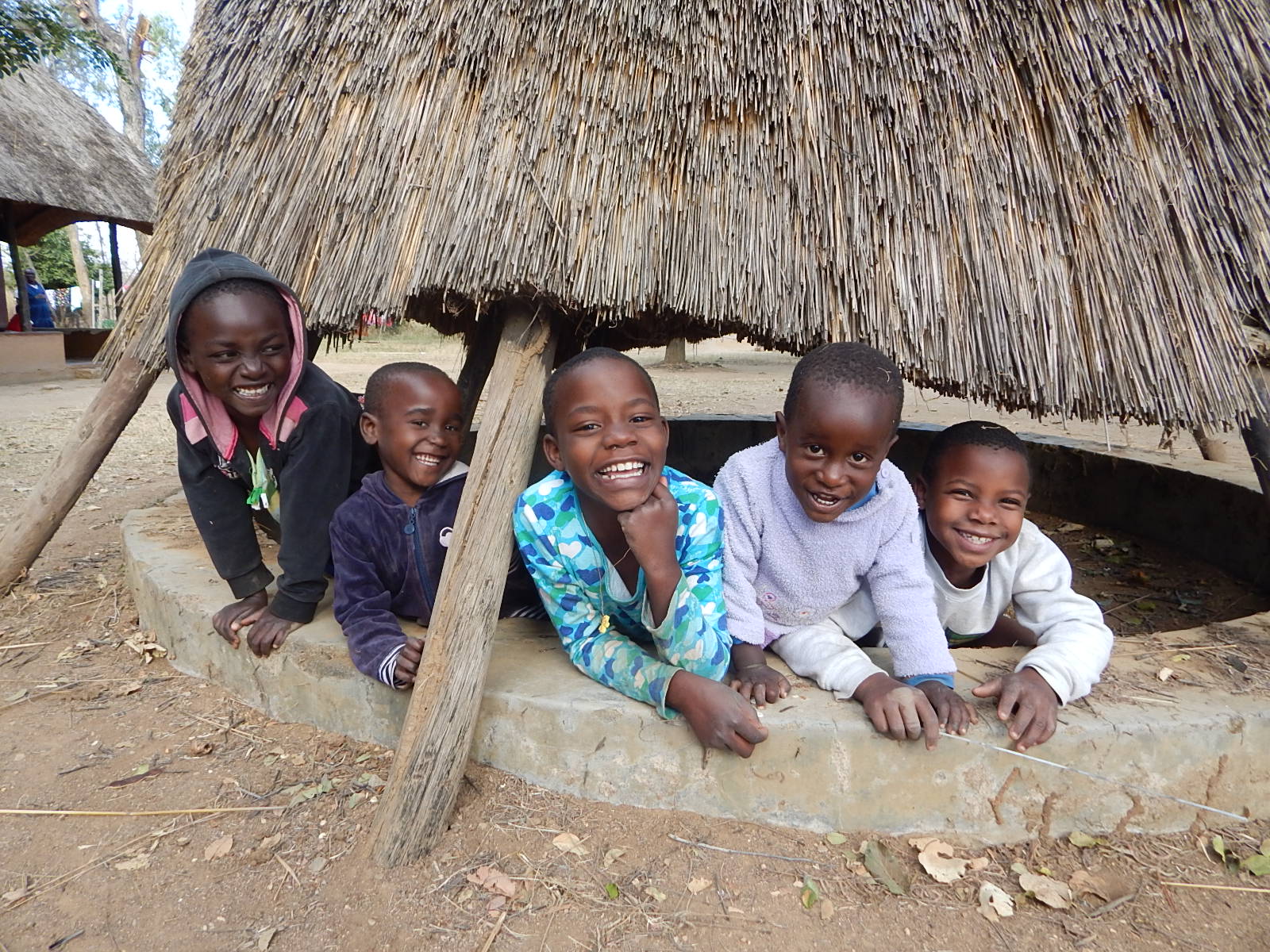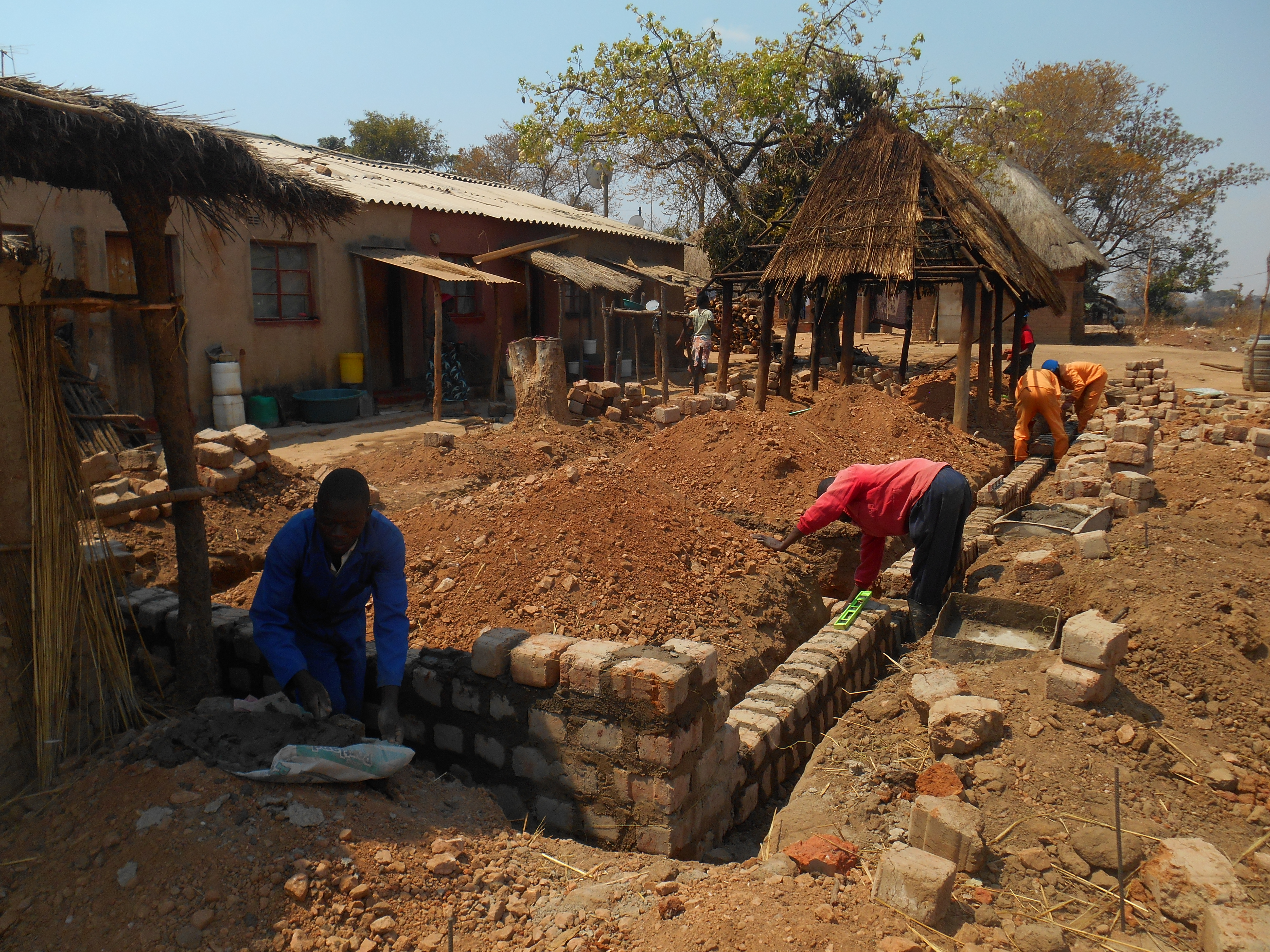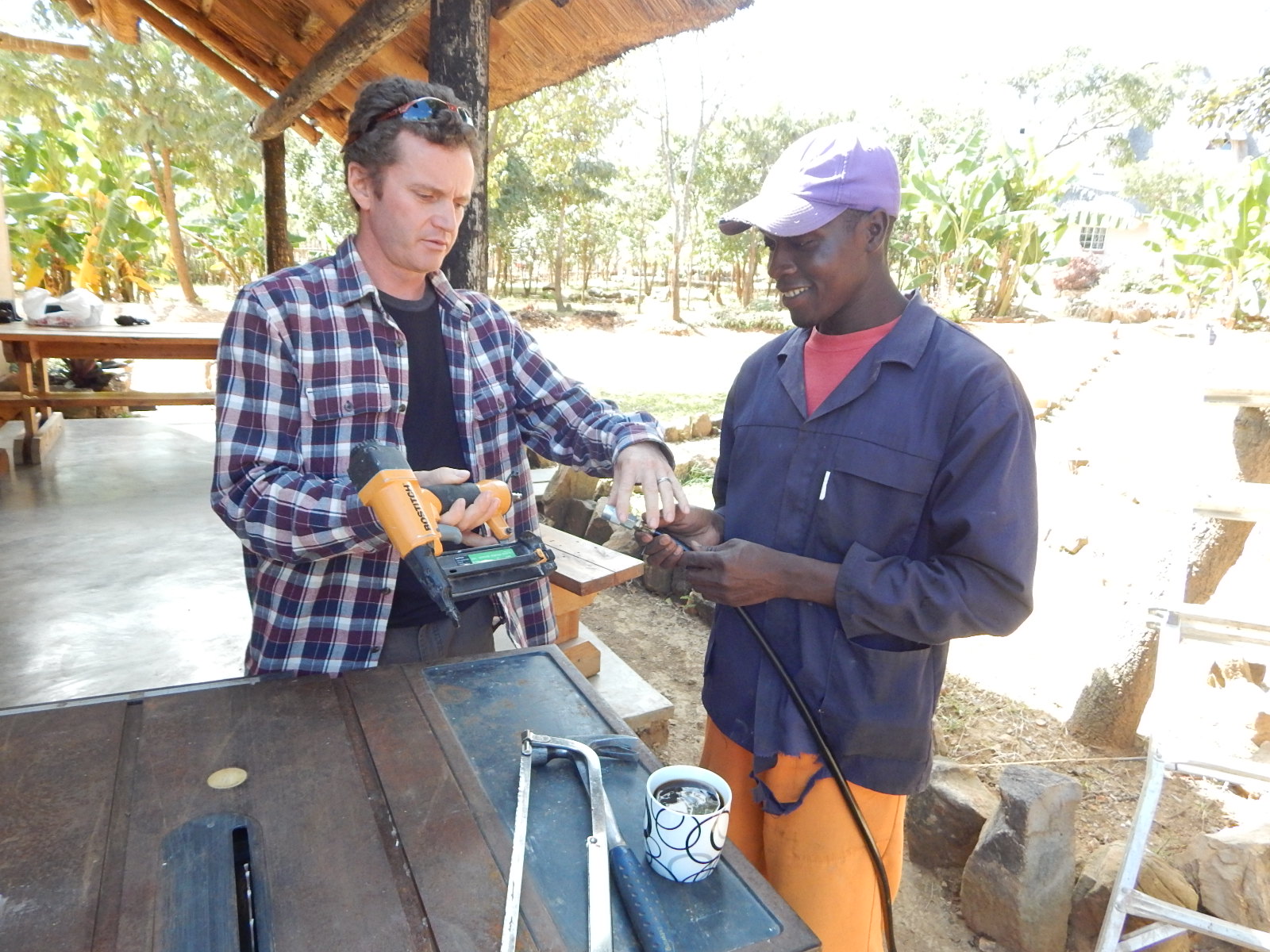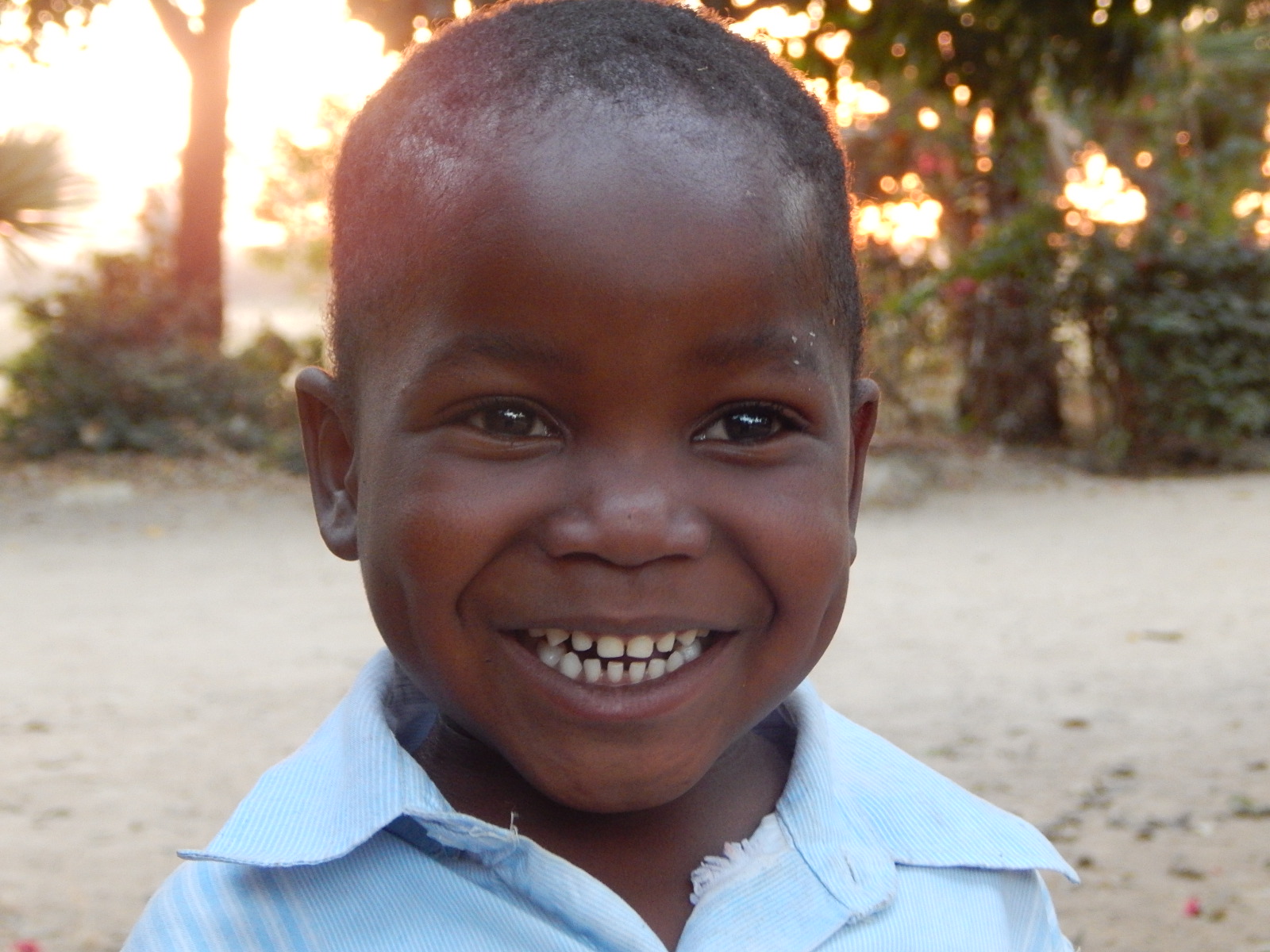
There is a young man named Sinate who works with the thatching crew at Eden and he likes to joke around with me. He used to wear red satin slippers to work and I’d tease him about them. I asked him why he wore them and he’d say they were all he had, even though I’d seen him in good running shoes before. One day he was down a hole digging and he stopped when he saw me walking over and he told me that I should get a new work suit. The jeans I was wearing were full of holes and tattered and he thought I would look better in a work suit. I said that the tattered jeans were fine and I liked them. I noticed that he was looking at my feet and the new work shoes I’d just bought. I had destroyed my first pair doing all the metal cutting and welding on the new clinic, so I had bought a cheap pair of steel toed shoes in Harare. I tapped my toes together and asked Sinate if he liked my new shoes. He said that yes, he did. I asked him if he knew how I got the money to buy them. He said no, but that I probably got paid from Eden to get them. I was surprised by his answer and told him no, that I had to beg for money from my family and friends in Canada to get the new shoes. He just stared at me in shock. I used the word ‘beg’ on purpose because he would be able to relate to it and would have seen people begging for money before. I explained that we did not get paid by Eden to be there, rather our family and friends at home gave us money to pay our expenses to be there. He’d had no idea. He’d thought that Eden was paying us to be there and paying for everything for us.
I went on to explain why Eden Children’s Village exists, that it is primarily an orphanage and that the farm, school and clinic all exist to support the orphanage. Without the orphanage nothing else would be there. The orphanage is the hub of the wheel, the other parts are the spokes. I told Sinate that we need to keep that in mind every day while we work. That we are working to give unwanted children loving homes. Eden Children’s Village is like a family and has limited resources to pay for food, housing, workers’ salaries, clothing, taxes, vehicles, fertiliser, fuel and so on. When we take money to buy things like work suits for all the employees the money comes out of a limited pot of money, not a pile of cash hidden away like some in the community think. I told him that he needs to think of Eden Children’s Village as a family and that it doesn’t exist to give him a job, but to look after the abandoned and orphaned children in Zimbabwe. It’s a lesson that I gave repeatedly to the builders as well, to keep our purpose at the centre of our vision.
